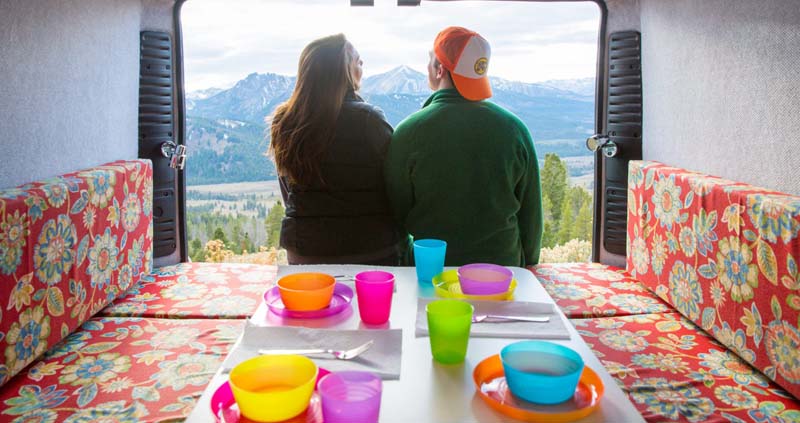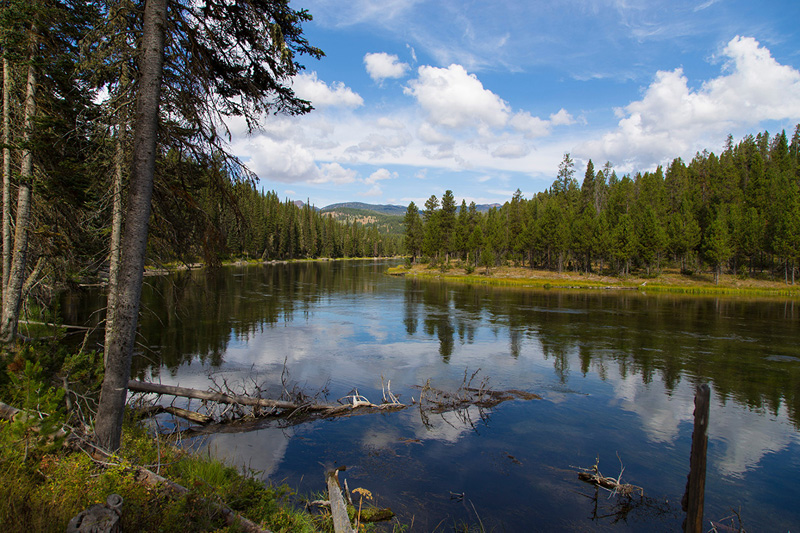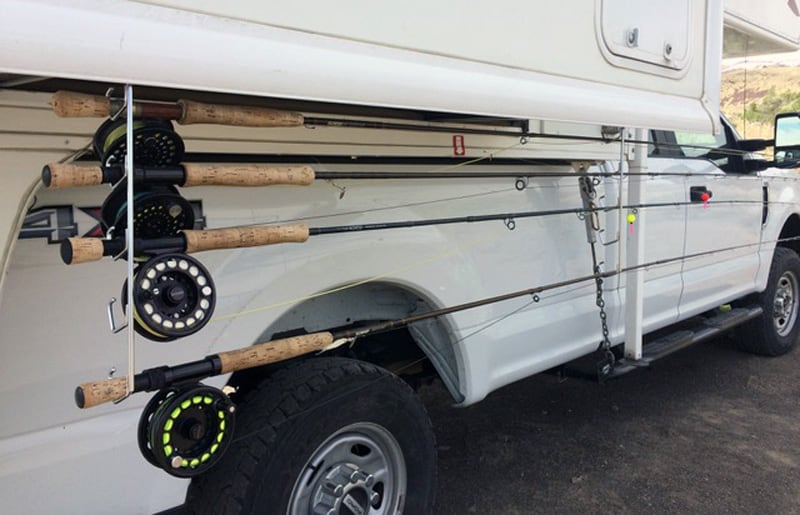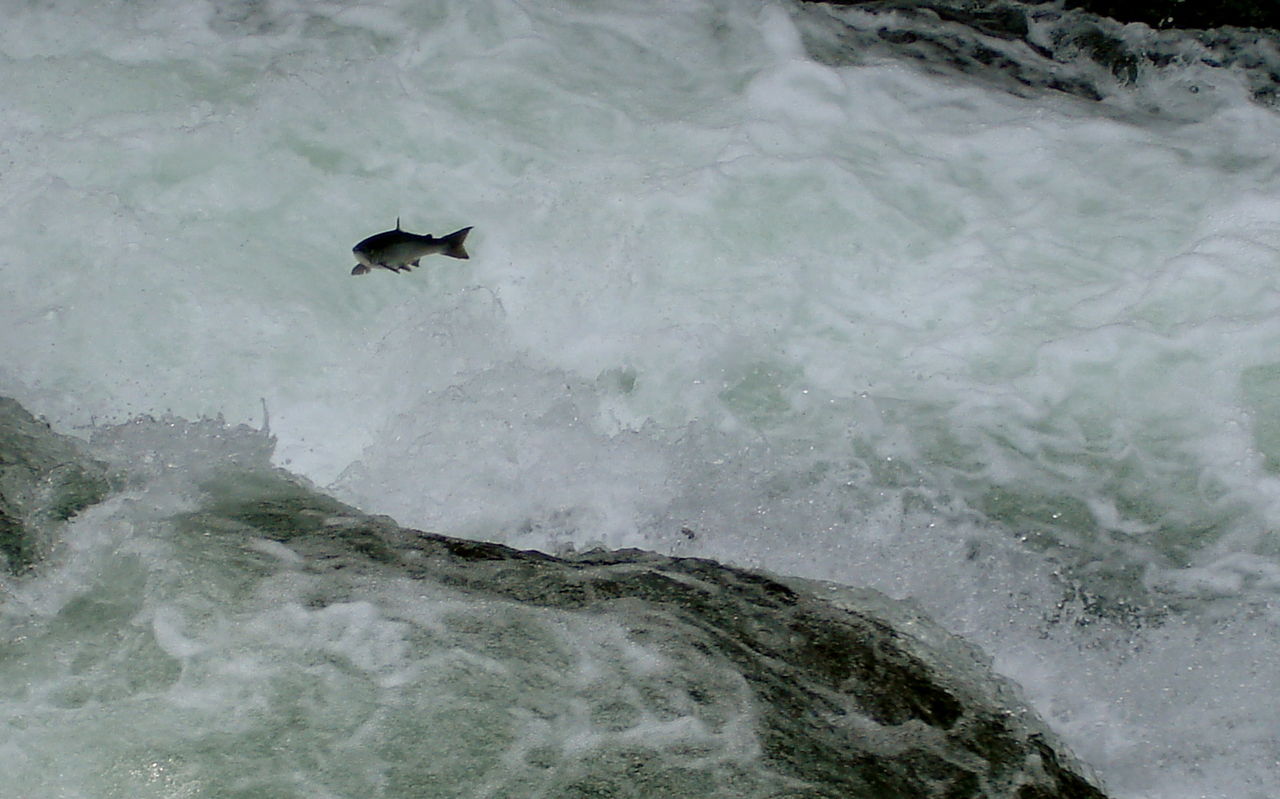
#VanLife has grown in popularity as Instagram is flooded with photos of people roaming the country while living out of their cars. (Provided by Kúkú Campers)
To be or not to be a couch potato
By Skip Clement
When crazy wasn’t as mad as the world is today, my hard-working friends and I had enough disposable income to hit the road at least two times a year on fly fishing expeditions to continents north, south, east, and west of our tribal U.S. homes.
Many trips were not the gourmet lodges of today so, several of our destinations were trailblazing adventures to South America’s jungles or float plane only accessed in mountainous regions or far distant lakes and watersheds. One, a fatal fly-in to Northern Quebec – a canoe-tent-camp trip that called for paddle and fish each day [four native guides and four canoes] to a new setup each night and repeat for a week, then get picked up at a predetermined extraction point.
Dying to fish for the brook trout
One adventurer had a heart attack the first night and died. We hoisted him up on a bear-proof tree limb in a protective shroud in the morning, decided to say a few words, and carried on our way—his much-aggrieved friends were sullen for the entire trip. The brook trout fishing was beyond amazing with many double digit specimens and days where the fly had nothing to do with the catching. A cadillac bumper would have worked.
Currently, our group of about eight former businessmen-lifetime fly fisher friends downsized to four due to natural selection, but in reality down to only two having enough spring left in our steps to fly fish beyond our home waters.
Getting to know about RVs
After a solid year of research, which included hundreds of hours of YouTube, renting a few times, attending all kinds of RV shows, and visiting RV dealers and manufacturers near and far, we both transitioned to our own RV choices, concluding the conversion of a cargo van was the best way to go and that $70,000 was a decent budget. My Philadelphia friend, Mario, and I both chose the same RVs for our planned north route of crossing the country, and one to Alaska next year, or the Yucatan if the Pandemic gets controlled in the U.S. – assuming new management, of course.
We both chose the Dodge Promaster with the high roof. I selected 136″ wheelbase and 2500 and Mario the 159″ wheelbase 3500 extended. His build-out cost was $86.8K, and mine much less. Most of Mario’s extra cost due to special needs for his wife, the bigger Promaster and buying it new.
Small inconveniences
I suffer a little choosing a Promaster being 6′ 4″ tall, but sleeping on a diagonal is not unfamiliar, nor is ducking—each of us decided on significantly different aspects of outfitting and modifying. For example, Mario’s confined mostly to his wife’s unique needs, and I am single so, I didn’t even need a passenger seat, so I removed it, and Larry, my cat, never complains about that because he has a perch atop the storage cabinet that replaced the passenger seat. I also chose to lift the van 4″ and bolster the front and rear suspension. The latter for off-road clearance and the suspension because of the beating it takes off-roading and weight it carries when on fully outfitted fishing trips.
The diesel Mercedes 4 X 4 Sprinter was an early favorite, but repair issues and those costs of repair and limited mechanics available to work on them ruled it out. The Ford cargo van would be the right choice, but it cost more than the Dodge and didn’t offer anything significant for the extra cost.
By the way, the Promasters are the only front-wheel drives available [I believe] as a conversion build and have an unchallenged turning radius that allows for narrow trail turn arounds that would be impossible with any other mentioned cargo vans.
Add quiet highway tires, but with great off-road toughness [several makers], it challenges most 4 X 4s in near-impossible situations. Too, the engine is simple, and even outback garages have mechanics who can work on them.

Henry’s Fork of the Snake River near the Coffee Pot Rapids area near Island Park, Idaho, in September of 2013. Credit James N Perdue, Wild and Scenic Photos – commons photo.
Neither of us wanted to be RV Campground shut-ins or guilty of blocking traffic and sunlight
“Towing a massive beast that could support a small caliphate during the zombie apocalypse. A home away from home, complete with slide-outs, an onboard flat screen, the La-Z-Boy recliner, the marble-countered kitchen with the convection oven, and the master suite armed with a second T.V.” — author unknown
Big rigs never got considered, nor did we want to be denied any backcountry access because of towing a behemoth in the 40-foot league.
The Oliver Legacy Elite II [23′ 6″] offered the best comfort and most rugged build on our list. Even the two best truck camper brands, we both felt, limited our off-road access and meant we would be stuck with a dually drive vehicle for day to day home use and an additional cost of camper storage.
I broke in my rig in on short forays to out of state fly casting for trouts and marsh dwelling redfish, pro guided and captained skiff, of course. And the joy of alone in my square footage listening to Larry purr as the night rain moves through the forest, or watching the blazing summer sunrise over the Atlantic with a hot cup of coffee makes me glad to have the opportunity to be, rather than not to be – like a couch potato.

From parking in your yard with a view of the neighbor’s garbage cans to an RV park 800 miles away so the kids can watch TV in the air-conditioned slideout and you are so happy about the great parking spot just 20 yards from the cinder block laundry facility.
First, training wheels
Too, the short trips trained me about storage issues like where the weight needs to be, what rattles and needs to be “nailed” down, and about fuel consumption needs from point A to point B. What are safe speeds to travel on highways, backroads, and unpaved logging roads? How does my loaded camper brake, does it keep tire pressures, and train myself to regularly check under the hood, read electrical panels, and check the roof solar panels. And lastly, do I need this or that, and do I need something? The comforts of home, as best they can be in an RV, are essential to enjoying any on the road travel experience.
I am so glad to have a composting toilet [does require getting used to]. I do not have a black water tank to deal with, and I have an in-camper switch release for gray water [sink only and strained] to a sewer anywhere. The composting does not smell at all; it only stinks to high heaven if combined with urine. The poop is bagged and dumpstered or scattered as fertilizer. The urine goes in the weeds anywhere – harmless to plants and bushes. If anyone gets on you about the latter practices, ask them if they diaper deer, bears, coyotes, and other four-legged animals where they live?
How sweet it is
As an angler travels to a destination, hitches up her waders, assembles a five, scouts the stream, finds a pocket, picks a streamer that gets eaten on the second cast has to say to himself – paid in full. Why? Because you washed away the world.
Three days later, you know a few miles of the stream, and you can hear things you did not understand yesterday, the slightest movement in a few feet of water is seen, not scanned over and missed. The trout you’re going to eat tonight has vole remnants so, tie a mouse this evening.
You get back to the van, you pet greets you, and the cold outdoors hits your naked body, but shivering changes when the shower hits you with hot, 6o psi freshwater and rebirths you energized.







